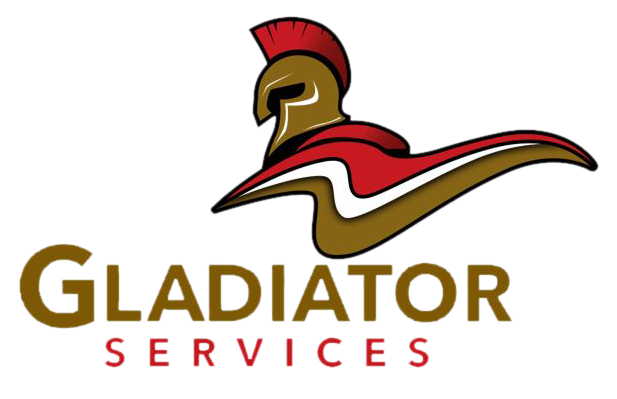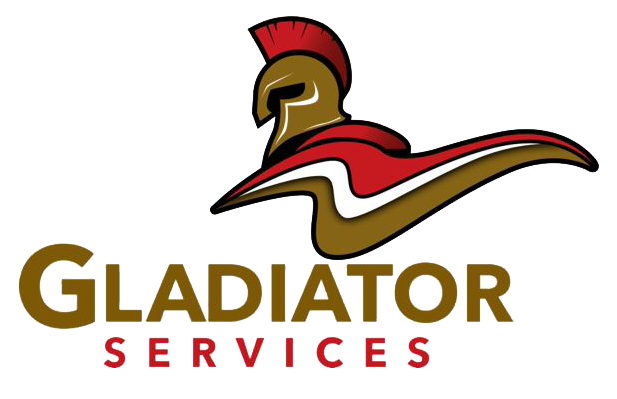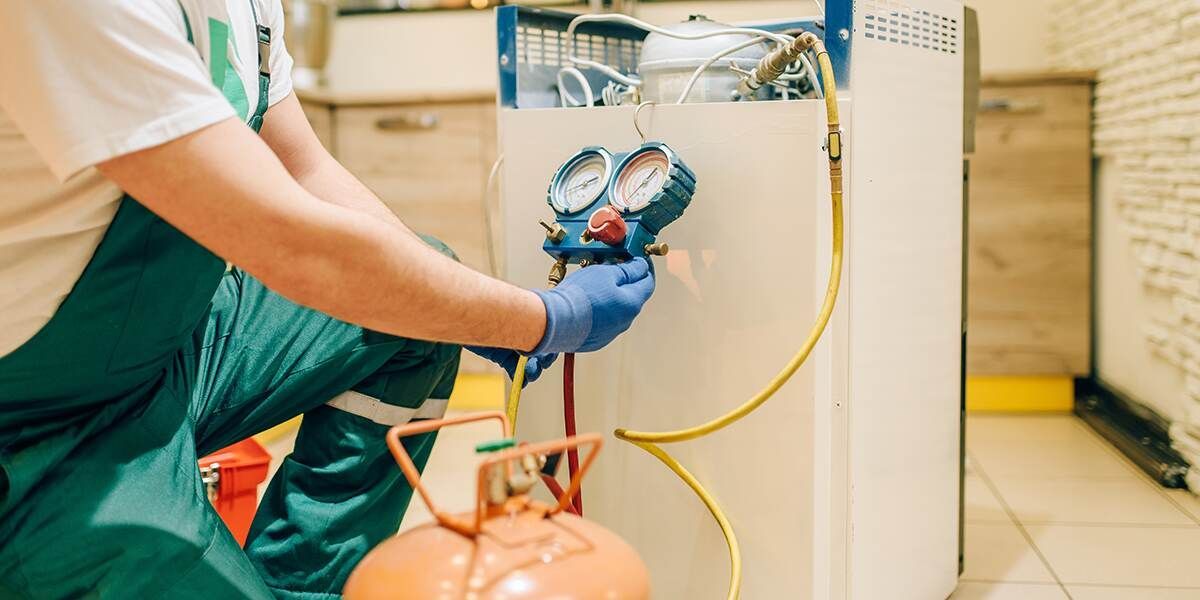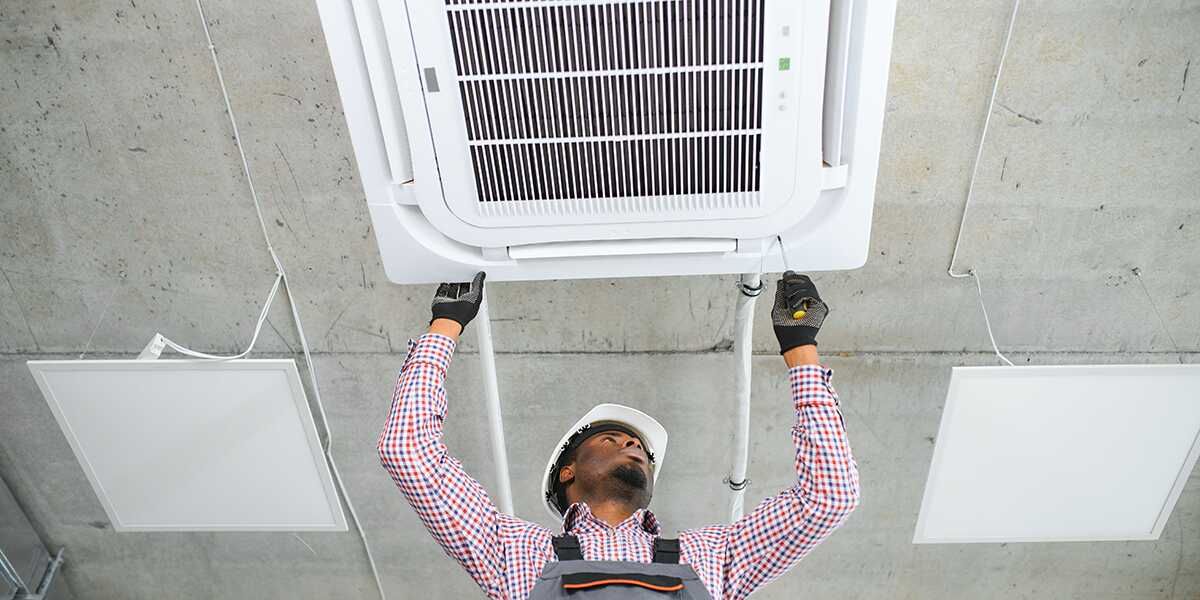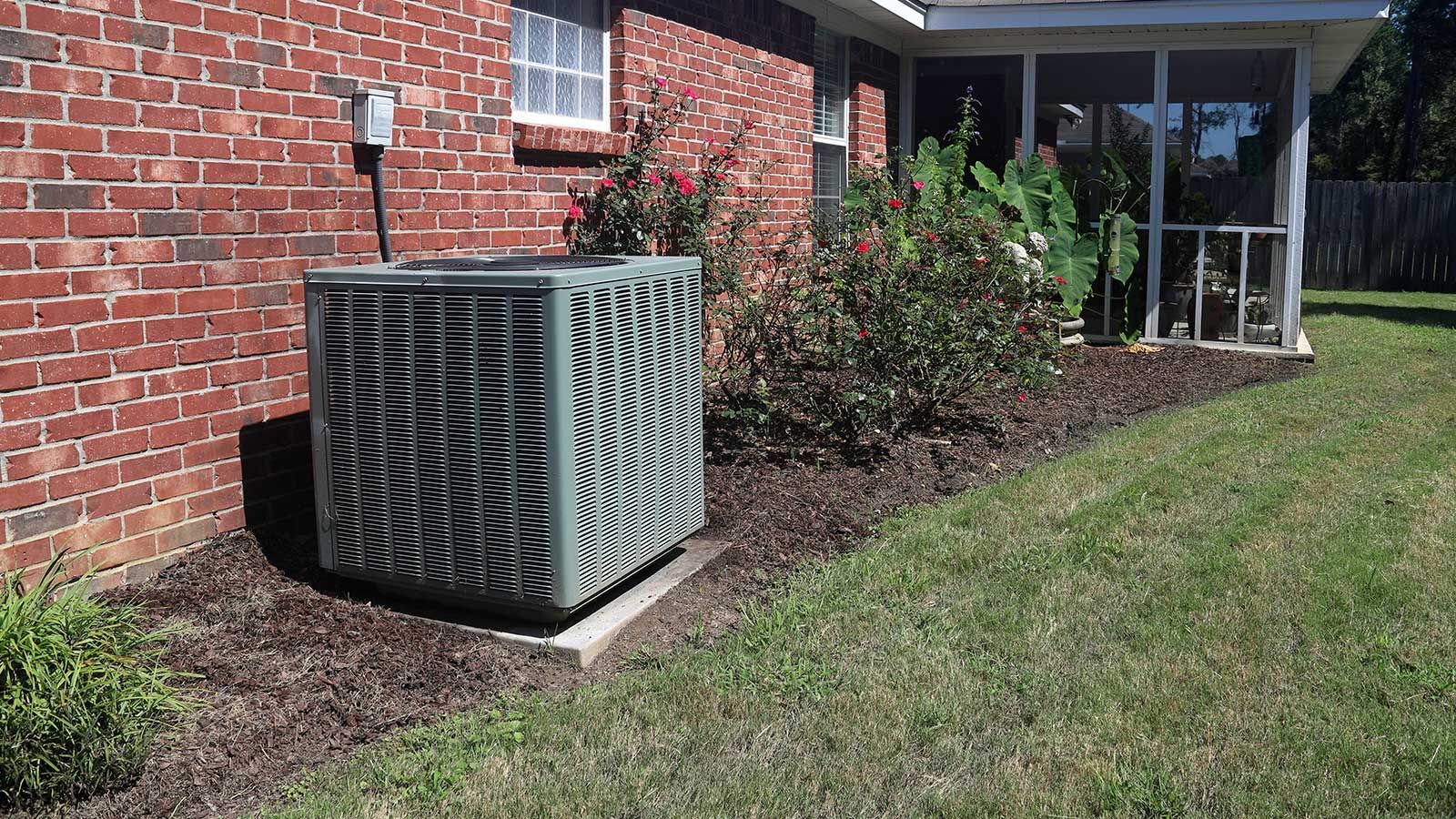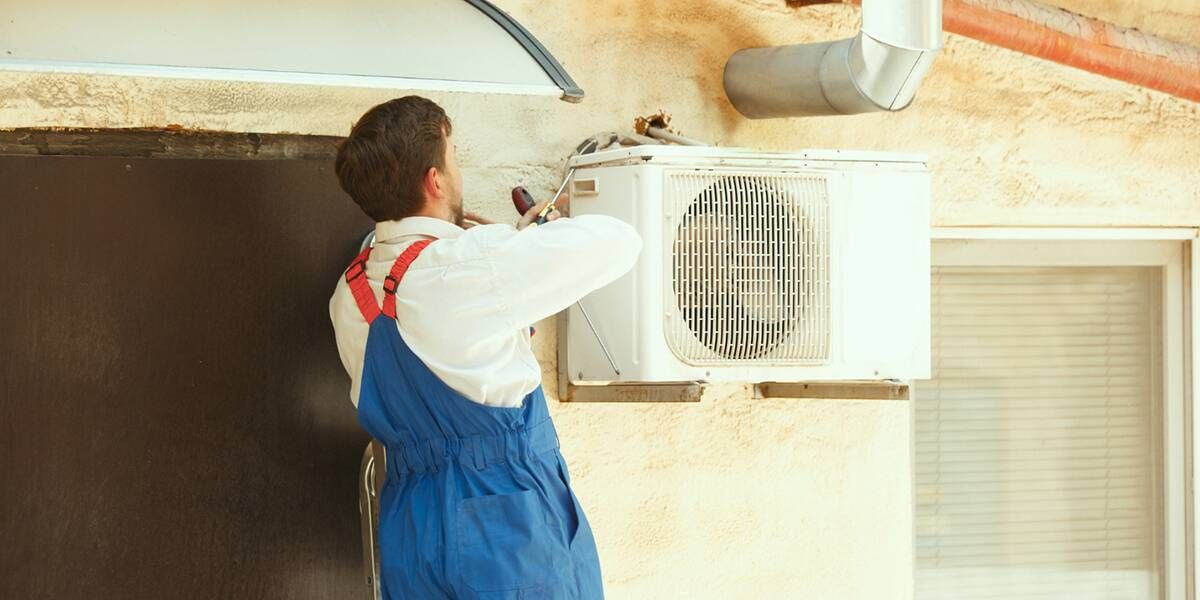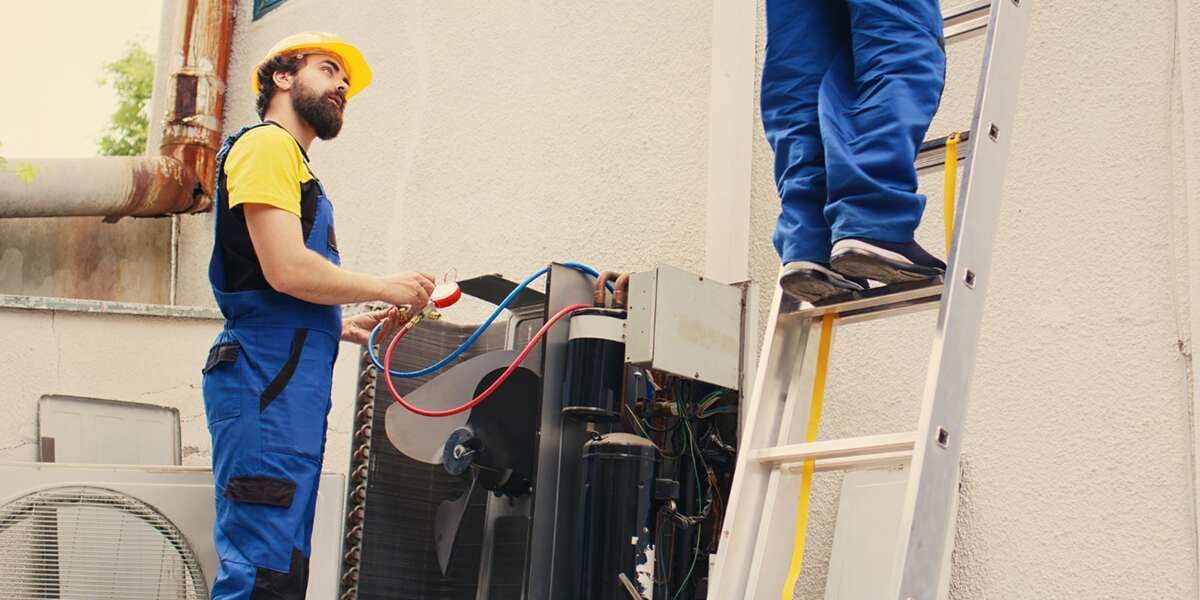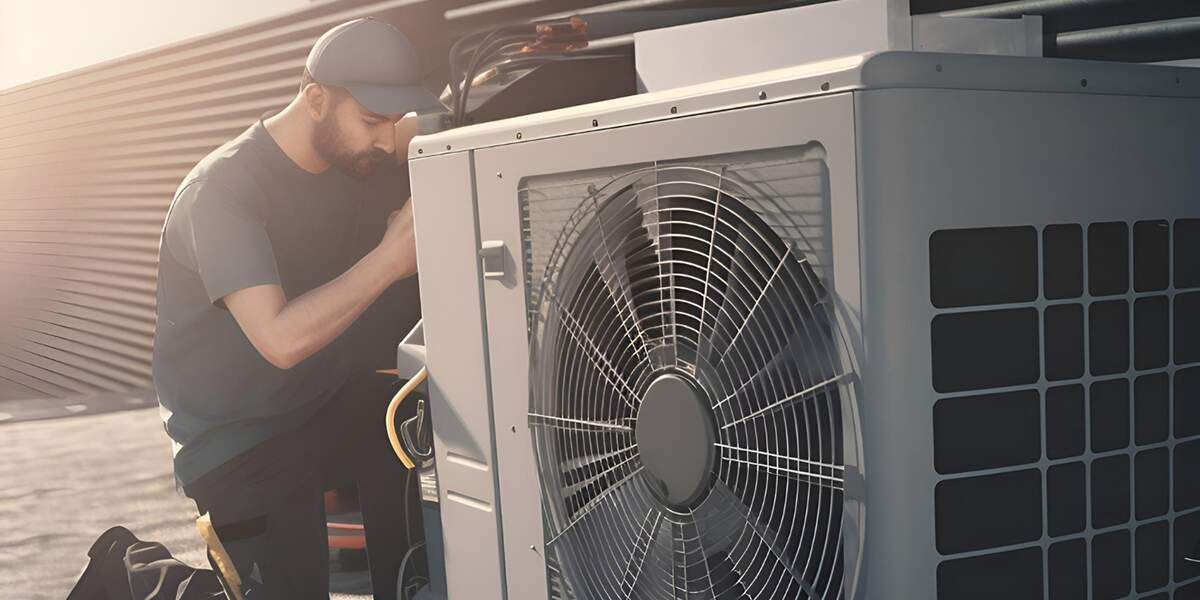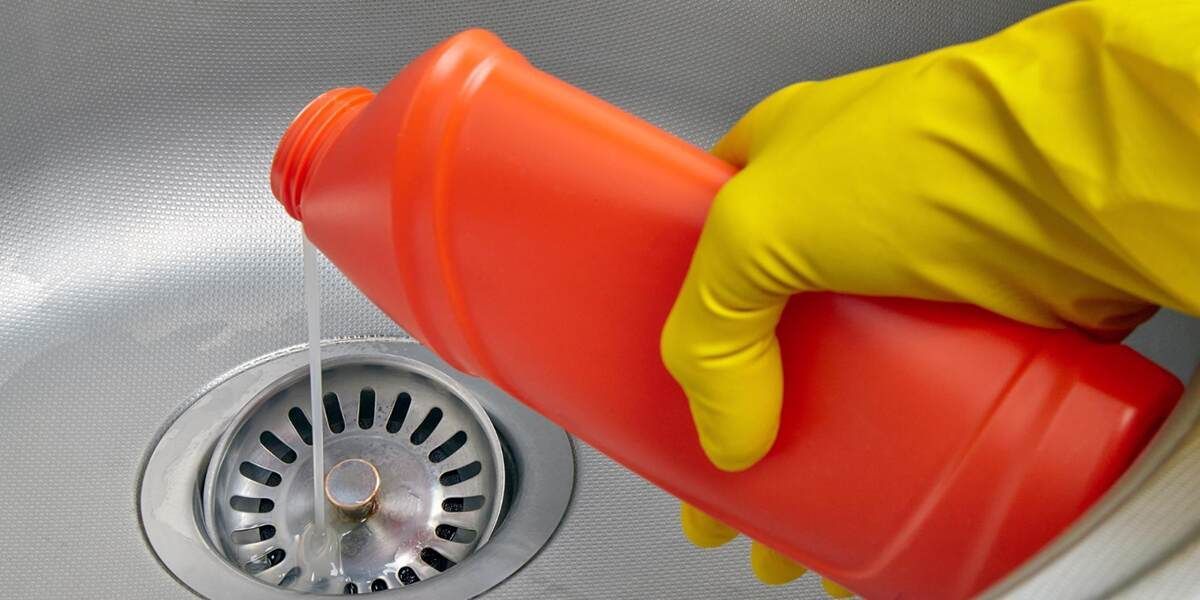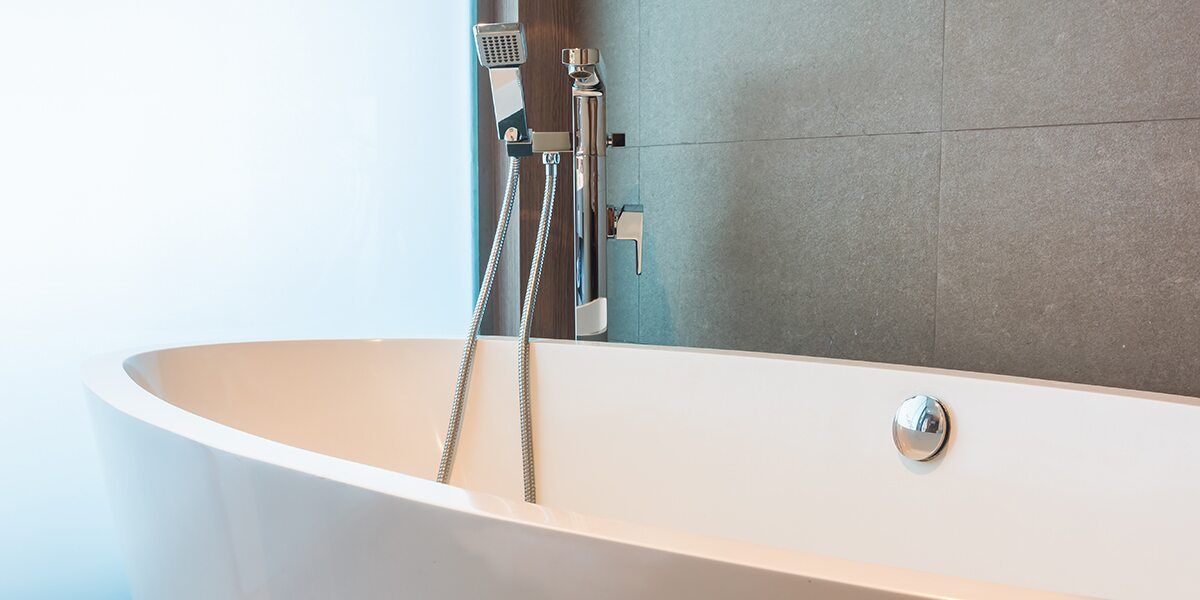The Ultimate Air Conditioning Service Guide
Gladiator Services
May 07, 2024
Guarantee peak performance and long-lasting air conditioning system operation with our ultimate service guide. Regular maintenance and inspections by professionals identify issues early, saving you time and money. DIY cleaning tips like replacing air filters and clearing debris maintain efficiency. Watch for unusual noises or weak airflow – signs of potential problems. Optimize thermostat settings for energy savings. Keep condenser coils clean and maintain proper refrigerant levels. Learn to troubleshoot common AC issues. This all-encompassing guide covers all aspects to keep your AC system running smoothly and efficiently.
Importance of Regular Maintenance
Regular air conditioning system maintenance is essential to guarantee peak performance and longevity. Seasonal tune-ups are important to ensure your system operates efficiently throughout the year. These tune-ups involve a professional technician thoroughly inspecting your air conditioning unit. Professional inspections help identify potential issues before they escalate into major problems, saving you time and money in the long run.
During a professional inspection, the technician will check the refrigerant levels, clean the coils, inspect the ductwork, lubricate moving parts, and ensure all components function properly. These regular check-ups allow you to catch any issues early on and prevent costly repairs or replacements.
In addition to improving the lifespan of your air conditioning system, regular maintenance also aids in maintaining good indoor air quality and reducing energy consumption. Therefore, investing in professional inspections and seasonal tune-ups is key to keeping your air conditioning system running smoothly and efficiently.
DIY Cleaning Tips
Incorporating DIY cleaning tips into your routine is crucial to maintain your air conditioning system. Regular cleaning not only improves the efficiency of your AC but also prolongs its lifespan. Regarding DIY maintenance, eco-friendly alternatives, and homemade solutions can be impactful in keeping your system running smoothly.
Start by cleaning or replacing the air filters every 1-3 months to guarantee proper airflow and reduce strain on the system. You can use a vacuum or wash the filters with mild detergent for reusable ones. Moreover, clean the evaporator and condenser coils annually to prevent dust buildup that can hinder heat transfer.
Mix equal parts water and vinegar for a homemade cleaning solution to create a natural cleaner for the coils. This is both cost-effective and environmentally friendly. Clear debris around the outdoor unit and ensure proper drainage to prevent mold and algae growth. You can maintain your air conditioning system effectively and efficiently by following these cleaning techniques.
Signs of AC Problems
If your air conditioning system is making unusual noises or you notice weak airflow from the vents, these could be signs of potential issues. Addressing these signs promptly can help guarantee further damage and ensure your AC unit operates efficiently. Watch for these warning signals to catch problems early and avoid costly repairs.
Unusual Noises
When strange sounds emanate from your air conditioning system, it clearly indicates potential problems that demand immediate attention. A noisy compressor can be a common culprit behind these unsettling sounds. Troubleshooting such issues involves checking for loose parts, worn-out components, or a faulty compressor motor. Confirm that the compressor is properly mounted and that all bolts are securely fastened. Furthermore, strange sounds may stem from the blower motor or fan assembly. Regular maintenance tips include lubricating moving parts, cleaning or replacing air filters, and scheduling professional inspections to address any underlying issues promptly. By addressing unusual noises promptly, you can prevent further damage to your air conditioning system and ensure efficient operation.
Weak Airflow
Addressing weak airflow in your air conditioning system is important as it can indicate underlying AC issues that require immediate attention to ensure peak performance. When experiencing weak airflow, check for restrictions such as clogged air filters, blocked vents, or a malfunctioning blower motor. Troubleshooting these common issues can often lead to a quick resolution. Moreover, conducting a thorough ductwork inspection is vital to identify any leaks, gaps, or blockages that might impede the airflow. Sealing ductwork gaps and repairing any damages can greatly improve the overall airflow in your system. Regular maintenance, including cleaning or replacing filters and ensuring proper ductwork function, is key to preventing weak airflow and maintaining optimal AC performance.
Changing Air Filters
To guarantee the peak performance of your air conditioning system, regularly replace the air filters as the manufacturer recommends. Filter replacement is vital for maintaining the efficiency of your air conditioner. Over time, air filters collect dust, dirt, and other particles, which can clog the system and reduce airflow. A dirty filter impacts the air quality in your home and forces your AC unit to work harder, leading to increased energy consumption.
Choosing the right type of filter is important when it comes to filter efficiency. High-efficiency filters can trap smaller particles, improving the air quality and overall air conditioning system performance. Check the MERV (Minimum Efficiency Reporting Value) rating of the filter to ensure it meets the manufacturer’s recommendations.
Regularly inspecting and changing your air filters every 1 to 3 months, depending on usage, is a simple yet effective way to keep your air conditioning system running smoothly and efficiently.
Thermostat Settings Optimization
When optimizing your thermostat settings, focus on fine-tuning temperature control to guarantee comfort and efficiency. Consider energy-saving settings that can assist in reducing utility costs while maintaining a pleasant indoor environment. Implementing programming best practices can further improve your AC system’s performance and help you make the most out of your cooling system.
Temperature Control Tips
For ideal temperature control and energy efficiency, consider fine-tuning your thermostat settings to align with your comfort needs and daily schedule. To optimize your air conditioning system, follow these tips:
- Set Temperature Ranges: Program your thermostat with a reasonable range, such as 78-80°F during the day and slightly higher at night.
- Utilize Fan Settings: The ‘auto’ setting allows the fan to operate only when needed, reducing energy consumption.
- Adjust for Absences: Raise the temperature when you’re away to save energy without compromising comfort.
- Monitor Humidity Levels: Monitor indoor humidity to prevent temperature fluctuations and maintain cooling efficiency.
Energy-Saving Settings
To maximize energy efficiency and optimize your air conditioning system, adjust the thermostat settings for energy-saving benefits. Smart thermostats play an important role in achieving this goal. These devices offer programmable options that allow you to set different temperatures for various times of the day, helping you save energy when you’re not at home or asleep. By utilizing smart thermostats, you can ensure that your air conditioning system operates efficiently without unnecessary energy consumption. Moreover, regular seasonal maintenance is vital to keep your thermostat functioning correctly. Ensure your thermostat is calibrated and checked during maintenance visits to guarantee accurate temperature readings and efficient operation. You can greatly improve your air conditioning system’s energy efficiency by incorporating smart thermostats and scheduling seasonal maintenance.
Programming Best Practices
Optimize your air conditioning system’s efficiency by implementing precise programming best practices through strategic thermostat settings.
- Code Organization: Arrange your cooling schedules logically to guarantee seamless operation.
- Debugging Techniques: Regularly check your thermostat for malfunctions to prevent system breakdowns.
- Error Handling: Set up alerts for temperature variations to address issues promptly.
- Version Control: Keep track of your settings and update them as needed to maintain peak performance.
Condenser Coil Care
Regular maintenance of your condenser coils is vital to guarantee the peak performance and efficiency of your air conditioning system. To ensure your coils remain in top condition, follow some coil maintenance tips and cleaning techniques.
Firstly, it’s important to regularly inspect your condenser coils for any debris, dirt, or dust buildup. Over time, these particles can accumulate on the coils, hindering heat transfer and reducing the efficiency of your system. To clean the coils, start by turning off the power to the unit. Using a soft brush or a vacuum with a brush attachment, gently remove the debris from the coils. Be careful not to bend the delicate fins of the coils during this process.
Consider using a coil cleaner specifically designed for air conditioning systems for more thorough cleaning. Follow the manufacturer’s instructions carefully when applying the cleaner to the coils. After cleaning, rinse the coils with water to remove any remaining dirt or cleaner residue.
Refrigerant Levels Check
Ensuring correct refrigerant levels in your air conditioning system is vital for peak performance and efficiency. Here are some important steps to guide you through the refrigerant levels checked:
- Refrigerant Leak Detection: Begin by inspecting for any visible signs of refrigerant leaks, such as oily residue around connections or hissing sounds near the AC unit.
- Maintenance Tips: Regularly schedule professional maintenance checks to guarantee proper refrigerant levels and promptly address any leaks, preventing further system damage.
- Refrigerant Recharge Process: If your system’s refrigerant levels are low, it may be necessary to recharge the refrigerant. A licensed technician should only carry out this process to avoid any potential hazards or damage to the unit.
- DIY Precautions: Avoid recharging the refrigerant, as it requires specialized equipment and knowledge. DIY attempts can lead to overcharging, undercharging, or further leaks, resulting in costly repairs.
Dealing With Leaks
To effectively address leaks in your air conditioning system, conduct a thorough visual inspection for any signs of refrigerant leakage. Leak detection is vital in maintaining the efficiency of your AC unit. Look for oily residue around connections, joints, or components, as this is a common indicator of leaks. Once you identify a leak, prompt repair is necessary to prevent further damage to your system. Repair the leak using appropriate materials and techniques to ensure a lasting fix. It’s advisable to seek professional help if you are unsure about the repair process.
Preventing future leaks is equally significant. Regular maintenance, including checking for leaks, can help you catch potential issues early on. Make sure that all connections are secure and properly sealed. Moreover, following manufacturer guidelines for refrigerant use and system maintenance can greatly reduce the risk of leaks. By staying proactive and attentive to your system’s condition, you can minimize the chances of costly repairs stemming from leaks.
Troubleshooting Common AC Issues
Inspecting your air conditioning system for common issues can help you diagnose and resolve problems efficiently. To troubleshoot common AC issues effectively, follow these steps:
- Check the Condenser Coils: Inspect the outdoor unit’s condenser coils for dirt, debris, or blockages. Dirty coils can reduce the system’s efficiency and cooling capacity. Use a coil cleaner and a soft brush to clean the coils gently.
- Monitor Refrigerant Levels: Low refrigerant levels indicate a leak or improper installation. Check the refrigerant levels using a pressure gauge. If you notice a significant drop in refrigerant, it’s best to contact a professional to locate and fix the leak.
- Inspect Air Filters: Clogged or dirty air filters can restrict airflow, causing the system to work harder and consume more energy. Check and replace air filters regularly to maintain peak performance.
- Evaluate Thermostat Settings: Incorrect settings can lead to inadequate cooling or heating. Verify that the thermostat is set to the appropriate temperature and mode for the season to avoid unnecessary strain on the system.
Conclusion
To sum up, remember that an ounce of prevention is worth a pound of cure for your air conditioning system. By following the tips and advice in this guide, you can guarantee your AC stays in top condition and avoid costly repairs down the line. Regular maintenance and DIY cleaning can make a big difference in the performance and lifespan of your unit. Don’t wait until it’s too late – take care of your AC now to stay cool and comfortable all year round.
Frequently Asked Questions
Can air conditioning service improve indoor air quality?
Air conditioning services can improve indoor air quality by cleaning filters, optimizing ventilation, and regulating humidity levels—regular maintenance guarantees efficient filtration, reducing pollutants. Consider air purifiers for added benefits in creating a healthier environment.
How often should I schedule professional maintenance?
Regularly scheduling professional maintenance is essential for peak performance. It guarantees efficiency, extends lifespan, and prevents costly breakdowns. DIY checks can supplement, but professional service identifies hidden issues, providing long-term savings and peace of mind.
Is it safe to install a smart thermostat myself?
Installing a smart thermostat can be safe if you have basic electrical skills. Pros include cost savings and convenience. Yet, improper installation can damage your HVAC system. Verify compatibility with your system before attempting DIY installation.
What should I do if my AC unit is making strange noises?
When your AC unit starts serenading you with strange noises, it’s time for a troubleshooting symphony. Engage in the maintenance orchestra, implement DIY solutions, and follow the troubleshooting steps to silence the commotion.
Can low refrigerant levels cause health problems?
Low refrigerant levels can pose health risks because of refrigerant exposure. Symptoms of low refrigerant levels include warm air blowing from vents, icy coils, and hissing sounds. Promptly addressing this issue with a professional is vital for safety
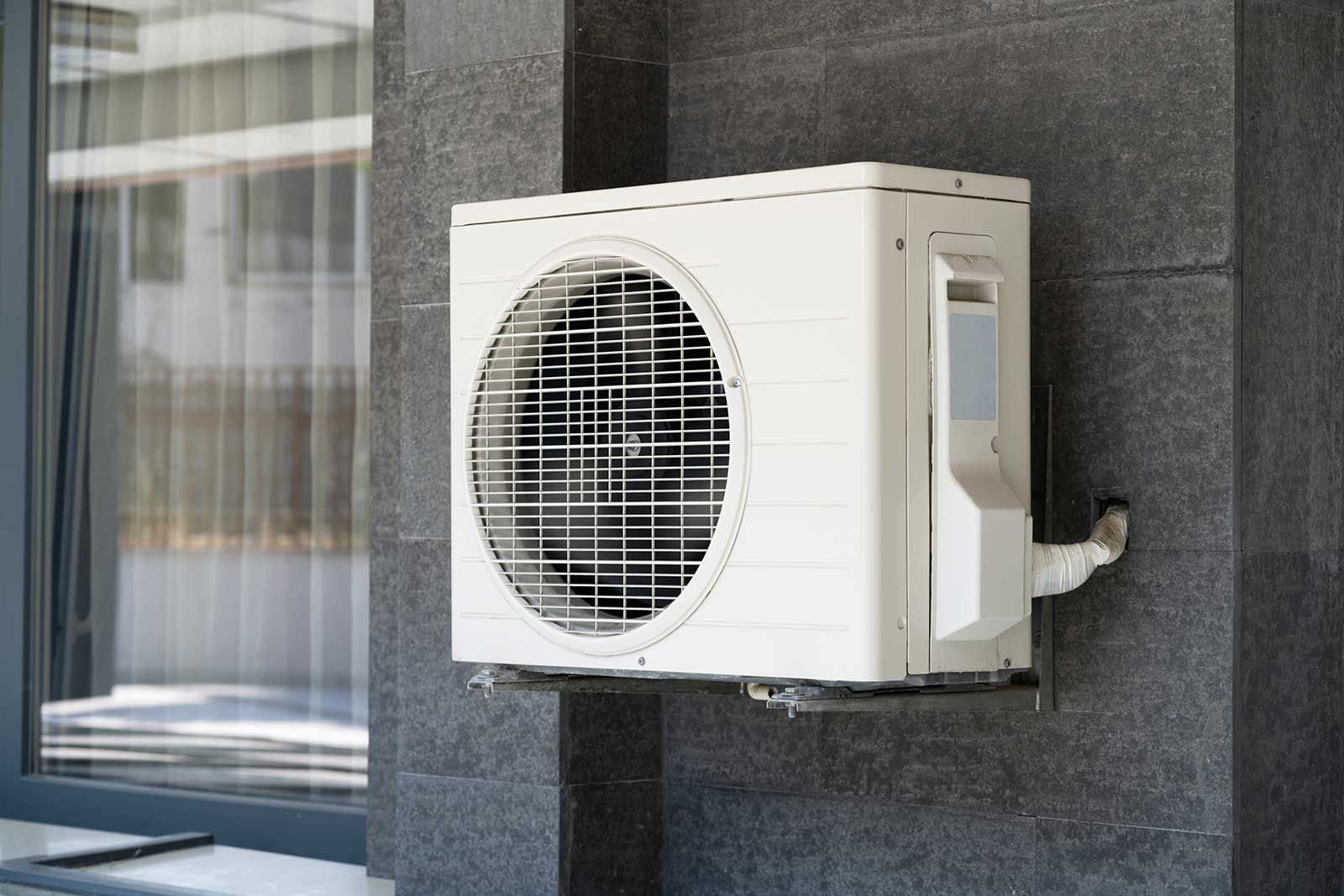
SERVICE AREAS
We Proudly Serve Clients from The Following Areas:
- Allendale
- Alpine
- Bergenfield
- Bogota
- Carlstadt
- Cliffside Park
- Closter
- Cresskill
- Demarest
- Dumont
- East Rutherford
- Edgewater
- Elmwood Park
- Emerson
- Englewood
- Englewood Cliffs
- Fair Lawn
- Fort Lee
- Franklin Lakes
- Garfield
- Glen Rock
- Hackensack
- Harrington Park
- Hasbrouck Heights
- Haworth
- Hillsdale
- Ho-ho-kus
- Leonia
- Little Ferry
- Lodi
- Mahwah
- Maywood
- Midland Park
- Montvale
- Moonachie
- New Milford
- North Arlington
- Northvale
- Norwood
- Oakland
- Old Tappan
- Oradell
- Palisades Park
- Paramus
- Park Ridge
- Ramsey
- Ridgefield
- Ridgefield Park
- Ridgewood
- River Edge
- River Vale
- Rockleigh
- Rutherford
- Saddle River
- Teaneck
- Tenafly
- Teterboro
- Township of Washington
- Upper Saddle River
- Waldwick
- Wallington
- Washington Township
- Westwood
- Wood-Ridge
- Woodcliff Lake
- Wyckoff
Call Us Today for A Free Quote on Your Plumbing Needs
Our certified plumbing professionals are dedicated to delivering exceptional service to residential and commercial clients. Reach out to us now to kickstart your plumbing solution!
Services
Contact Information
Gladiator Services
Patterson St, Hillsdale, NJ, 07642, United States
Open 24/7
All Rights Reserved | Gladiator Services | Privacy Policy | Terms of Service | Cookie Policy
